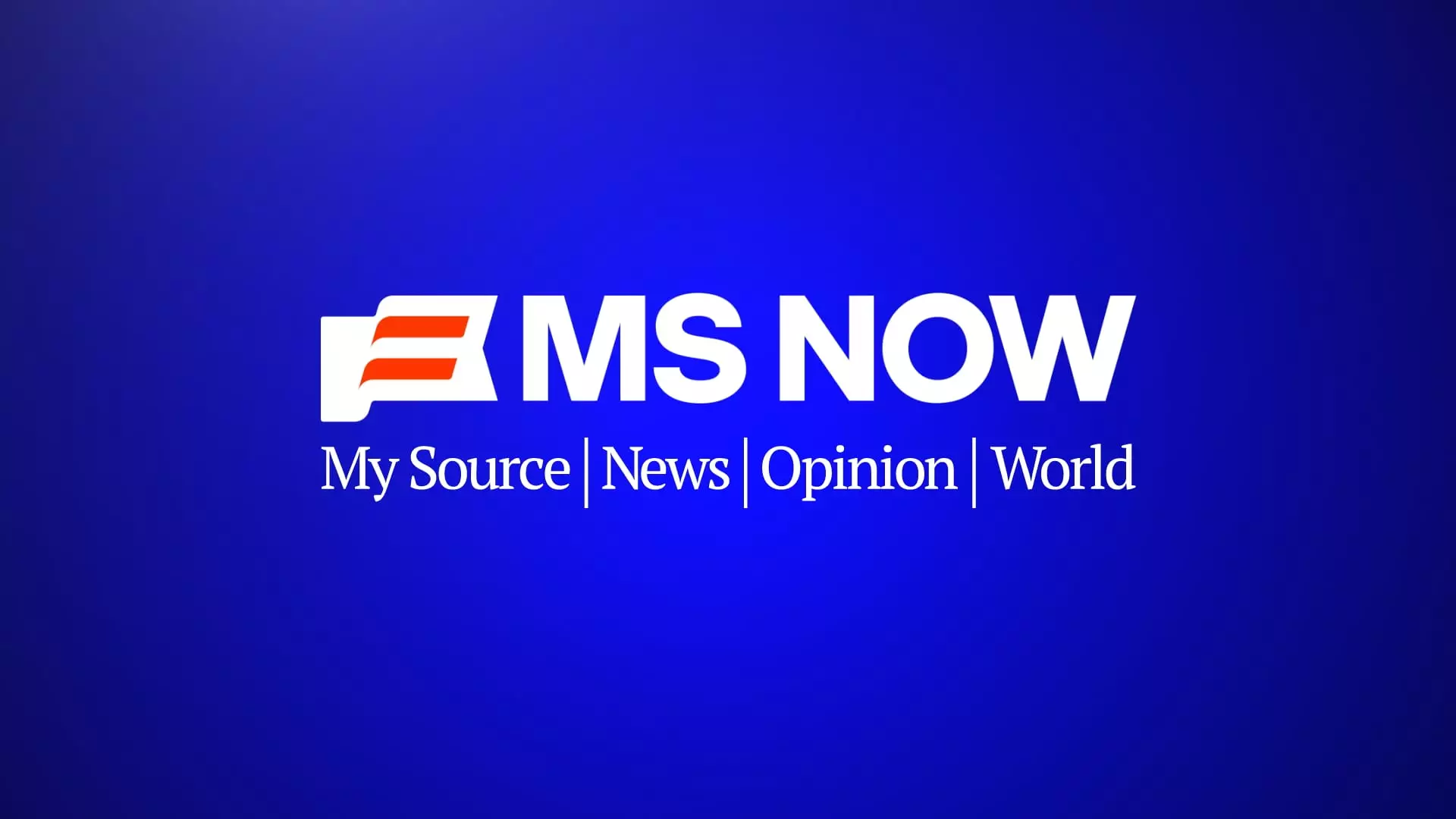In a move that rocks the boat of traditional media branding, MSNBC is set to undergo a dramatic transformation by changing its name and shedding its iconic peacock logo. This decision isn’t merely cosmetic; it reflects a deeper desire for the network to forge a new identity, one that distances itself from the NBCUniversal corporate giant and asserts a fresh, independently-minded stance. At first glance, this could be seen as a strategic marketing step. However, beneath the surface lies a subtle yet significant shift in ideological positioning—one that signals a cautious realignment with a more centrist or center-right liberal outlook. It’s as if MSNBC, long perceived as a left-leaning echo chamber, is trying to recalibrate its image for a more diverse audience that values independence and reasoned discourse over partisan agitation.
The move also aligns with broader corporate ambitions to create distinct media entities capable of navigating the increasingly polarized political landscape more effectively. MSNBC’s departure from its traditional branding suggests a recognition that its previous identity was limiting—perhaps even muddying its reputation among moderates and conservatives who may have viewed it as overtly biased. Renaming to “My Source News Opinion World” or “MS Now” symbolizes a shift towards a platform that promises to be perceived as more balanced and credible, or at least more aligned with the pragmatic middle ground. It’s an attempt to position itself as a credible alternative—less as a partisan megaphone and more as a nuanced, information-driven source.
Strategic Independence or Corporate Spin?
Yet, this branding overhaul is deeply intertwined with corporate strategy. NBCUniversal’s hand is evident here: it’s looking to spin off MSNBC as a semi-autonomous entity capable of standing on its own, unshackled by the broader corporate interests of Comcast. The hiring spree to establish a new Washington bureau, independent of NBC News, is a testament to this effort. It is a bid for journalistic independence—an assertion that MSNBC is no longer just a subsidiary but a brand with its own voice and identity. While the media industry often claims to be driven solely by journalistic integrity, economic realities suggest profitability and viewership ratings significantly influence these decisions. By rebranding, MSNBC aims to attract a broader demographic, including moderates and even conservative viewers who may have felt alienated by its previous positioning.
Similarly, the renaming and rebranding efforts across Versant’s portfolio, including CNBC and other associated properties, reveal a corporate desire to reinvent its entire media ecosystem. This is not merely about aesthetics but about laying the groundwork for a new power structure, one where the network can influence public discourse without being overshadowed by its parent conglomerate. The new name and branding are less about change and more about recalibration—an explicit signal that MSNBC is striving to be a more credible, independent voice in a fractured media landscape.
Implications for Media Fairness and the Political Spectrum
From a center-right liberal perspective, this shift is both promising and fraught with paradox. On one hand, it indicates a willingness by a major cable news outlet to diversify its ideological stance and embrace a more moderate viewpoint. The branding change could result in more balanced coverage, appealing to viewers wary of partisan extremes. It denotes an acknowledgment that delivering honest, nuanced journalism is vital for a functioning democracy, particularly in an era of misinformation and political polarization.
However, skepticism remains warranted. The fact that MSNBC feels the need to rebrand to bolster its independence suggests that it has perhaps relied too heavily on its identity as a progressive bastion—an image that has led to accusations of bias and echo-chamber effects. This attempt at reinventing itself may merely be superficial, a marketing ploy to insulate the brand from political backlash rather than a genuine commitment to balance.
Furthermore, the broader move within Versant’s brands to shed their logos and reposition themselves could exacerbate misinformation if these rebranding efforts dilute accountability. When viewers see a ‘new’ network without clear ideological signals, they risk being misled into trusting sources that may still be shaped by corporate interests or ideological biases masked behind a neutral veneer.
Final Thoughts: A Strategic Gamble or Genuine Evolution?
Ultimately, MSNBC’s decision to rebrand signals a crucial moment in media history—an attempt by a major player to redefine itself on the battlefield of information, influence, and public trust. Whether this change will lead to more balanced, responsible journalism or simply serve corporate interests remains to be seen. For the center-right liberal thinker, it’s a cautious, somewhat hopeful sign that mainstream outlets recognize the need to appeal to a broader audience and provide a more equitable platform for diverse perspectives.
Still, the underlying motivations appear to be less about fostering ideological diversity and more about economic survival and corporate branding. The jury is out whether this strategic pivot will serve to empower the public through honest journalism or merely polish an image seeking to hide entrenched biases under the guise of independence. In today’s media environment, appearances are often deceiving, and the true test will be whether MSNBC’s new identity can withstand the scrutiny of real journalistic integrity and political honesty.


Leave a Reply